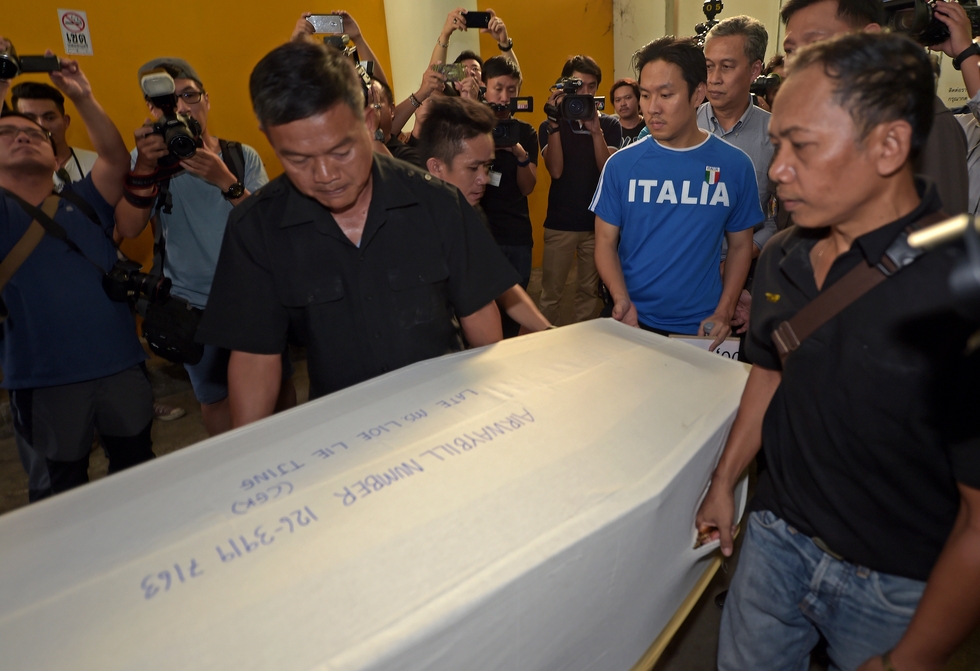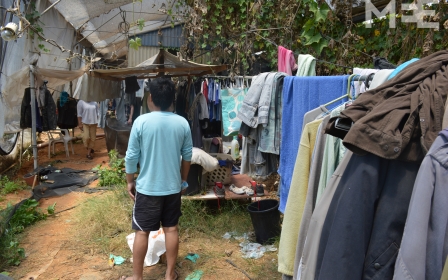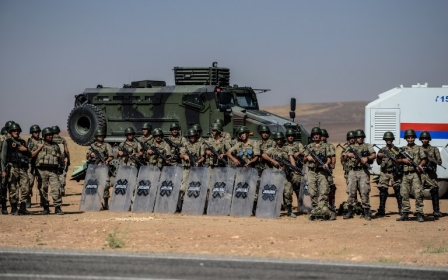Thailand investigates potential Turkish links to Bangkok blast

BANGKOK - Thai investigators are exploring possible links to Turkey as they seek a motive and the perpetrators behind a blast in downtown Bangkok on 17 August that killed 20 people and injured another 125.
Thai police have indicated that a network of suspects from Turkey or people using fake Turkish passports were involved in the deadliest explosion ever to take place in Bangkok.
Chinese passport holders, with links to the restive eastern Chinese province of Xinxiang, have also been implicated. Xinxiang is home to the ethnic Uighur Muslim minority whose human rights are routinely violated by the Han Chinese majority.
On Saturday, police spokesperson Prawut Thavornsiri told AFP that the suspected bomber, who remains at large, is a Uighur from Xinxiang in China’s east.
Eleven people are now wanted in connection to the blast. A further two foreigners have been arrested, with media reports showing the Turkish passport of the key suspect, Yusufu Mieralli, found with a cache of bomb-making components. However, the document appeared to be a low-grade forgery, with the name of Istanbul misspelt. A haul of presumably forged Turkish passports was also found in the apartment where Mieralli was arrested.
According to Dr Memtimin Ala from the World Uyghur Congress, Uighur men and women who flee from China are often found in the possession of Turkish passports.
“Many of them said they had them (Turkish passports), but they didn’t want to show them to me,” he told MEE.
They hope to use the passports to travel Turkey, which has generally had an open-door policy towards Uighurs from China.
Of the named suspects, two are Turkish citizens. One man was identified as Emrah Davutoglu, a Turkish citizen from the city of Kayseri in central Turkey. He is the husband of Thai national Wanna Suansan, the only female suspect.
“He is Turkish,” national police spokesman Prawut Thavornsiri told reporters.
“From our arrests, it is clear that this network sent people to that country,” Prawut said, referencing Turkey. Prawut added that he was wanted for was “possession of war materials”.
Speaking to AFP, the Turkish suspect’s wife, Wanna Suasan, denied any involvement, saying she was in Turkey at the time of the attack. A friend of her husband’s had been living in the apartment where the bomb materials had been found, she said.
The other Turk was named as Ahmet Bozonglan. Thailand investigators revealed that Bozonglan rented five rooms at the apartment complex where authorities discovered the explosives and forged documents. Little more has been disclosed about this man and he remains at large.
Turkish authorities deny that the key suspect, Yusufu Mieralli, is Turkish. The Ministry of Foreign Affairs released a statement on its website saying, “our embassy in Bangkok stated that he is not a Turkish citizen.”
The Turks, clearly frustrated by the police investigation, stated they have received little information from Thai authorities.
“Thai authorities should provide clear and correct information about this news report,” a spokesperson from Turkey’s Ministry of Foreign Affairs was quoted as saying.
Turkish foreign ministry spokesman Tanju Bilgic said he was aware of reports in the Thai media that Turks may have been involved but said Ankara had received no requests for information or assistance from Thai authorities.
"We told the Thai authorities: if you have any concrete information, please convey it to us. But until now nothing has been given to us," he said.
Attention during the investigation has also focused on a possible Uighur connection. Uighurs, the Turkic-speaking Muslim minority group from eastern China, have faced years of persecution by the dominant Han Chinese. In recent years, China has cracked down on dissent, citing concerns about terrorism and separatism.
Linguistically and culturally closer to Turkey than China, many Uighurs seek to leave eastern China and settle in Turkey. Kayseri, in central Turkey, has become the chosen destination for those who manage to leave China.
The Erawan shrine, the location of the Bangkok bombing, is a site popular with both local Thais and Chinese tourists. The fact that 11 of the 20 people killed and many of the wounded were either from mainland China or were ethnic Chinese from Hong Kong or Malaysia, led credence to the theory that this attack was aimed at sending a message to China.
Chinese tourists make up nearly 25 percent of the visitors to Thailand and add significantly to the tourism-led economy. That such a group should be targeted sent shockwaves through Thailand’s government and increased the urgency for those responsible to be arrested and punished.
But who would want to attack Chinese tourists and why? Attention turned to the possibility of a revenge attack after 109 Uighurs were deported to China in July this year.
The deportation of the Uighurs prompted an international outcry from human rights groups and strained relations between China and Turkey. The UN's refugee agency, UNHCR, said that they could face persecution and even torture after being sent back to China. In Istanbul, street protests erupted with Thai and Chinese interests being targeted. In Ankara, Thailand was forced to temporarily close its embassy.
Thousands of Uighurs are believed to have fled Xinjiang. Human Rights Watch says Uighurs face “pervasive ethnic discrimination, severe religious repression, and increasing cultural suppression”. Many of those who leave face a perilous journey to evade the Chinese authorities that try to block their illegal routes. They are forced to travel through Myanmar, Cambodia and Thailand in an attempt to get to Malaysia, from where they hope to travel to Turkey, their final destination.
Thailand is not the only country in the region to deport Uighurs back to China. Malaysia, Cambodia and Myanmar have also given in to the demands of China, ignoring their obligations under international law.
According to Mentimin Ala, of the World Uighur Congress, Uighurs who flee China often pay human smugglers between $10,000 and $30,000. Many of them buy forged Turkish passports that they hope to use for their onward travel to Turkey. From interviews with those who have fled China, he says the most powerful motivating factor is religious repression.
“If you look at the photographs, you can see that these people are very religious. In interviews with them, they told me that the biggest factor in leaving was because they couldn’t freely practice their religion of Islam,” Mentimin told MEE.
The Thai investigation has drip-fed information to the media on a daily basis but the motive for the attack is still unclear and the police have warned journalists to avoid speculation. However, a trans-national connection, linking Turkish citizens and Uighurs from Xinxiang is adding credence to the theory that this may well be a revenge attack for the treatment of Uighurs in South-east Asia. For now, Turkey continues to wait for information from Thailand about what links, it any, Turkish citizens may have to the bomb attack that killed and maimed so many people in downtown Bangkok.
New MEE newsletter: Jerusalem Dispatch
Sign up to get the latest insights and analysis on Israel-Palestine, alongside Turkey Unpacked and other MEE newsletters
Middle East Eye delivers independent and unrivalled coverage and analysis of the Middle East, North Africa and beyond. To learn more about republishing this content and the associated fees, please fill out this form. More about MEE can be found here.




